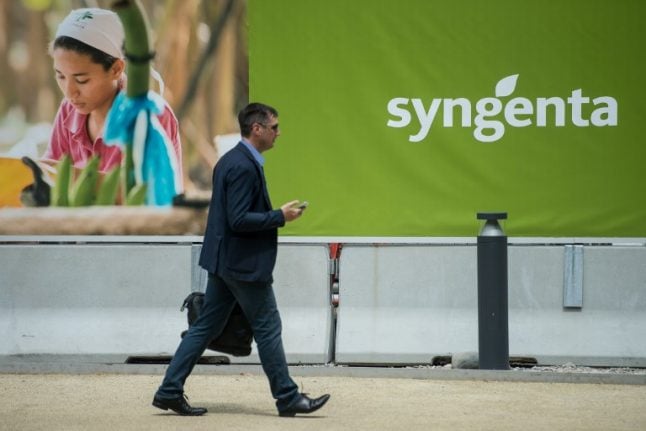In a statement, Syngenta confirmed April reports that Monsanto had made an offer for a merger that would have formed a world market leader in both seeds and crop chemicals.
"The Board of Syngenta confirms that it has received an unsolicited proposal from Monsanto to acquire the company at a price of 449 Swiss francs ($486) per Syngenta share with approximately 45 percent in cash," said the statement.
"The offer fundamentally undervalues Syngenta's prospects and underestimates the significant execution risks, including regulatory and public scrutiny at multiple levels in many countries," it said.
Syngenta shares soared after the news on the Swiss stock exchange, rising to 381.90 francs at 9:28 am — a 14.7 percent rise over Thursday's close.
The US firm had timed the offer with a slackening in Syngenta's performance but the Basel-based firm's chief said the business outlook was good.
"Syngenta is the world leader in crop protection, the number three in seeds and the first company to introduce integrated solutions for growers," chairman Michel Demare said.
"Monsanto's proposal does not reflect the outstanding growth prospects of Syngenta's integrated strategy," Demare said.
"While Syngenta's valuation is currently affected by short term currency and commodity price movements, the business outlook is strong, with emerging markets accounting for over 50 percent of our sales," he added.
Rumours of a possible merger between the two giants also surfaced nearly a year ago, in June 2014, but nothing came of them.
Syngenta was formed in 2000 by the merger of Novartis Agribusiness and Zeneca Agrochemicals.
Unia, the union representing workers at Syngenta's plant in Monthey, in the canton of Valais, announced on Thursday that the company was planning to lay off 116 of 900 workers there.
The canton said it had been informed by the company that the layoffs would take place between now and 2018.
Syngenta employs around 28,000 worldwide and 3,400 in Switzerland at seven sites, including Monthey.



 Please whitelist us to continue reading.
Please whitelist us to continue reading.
Member comments